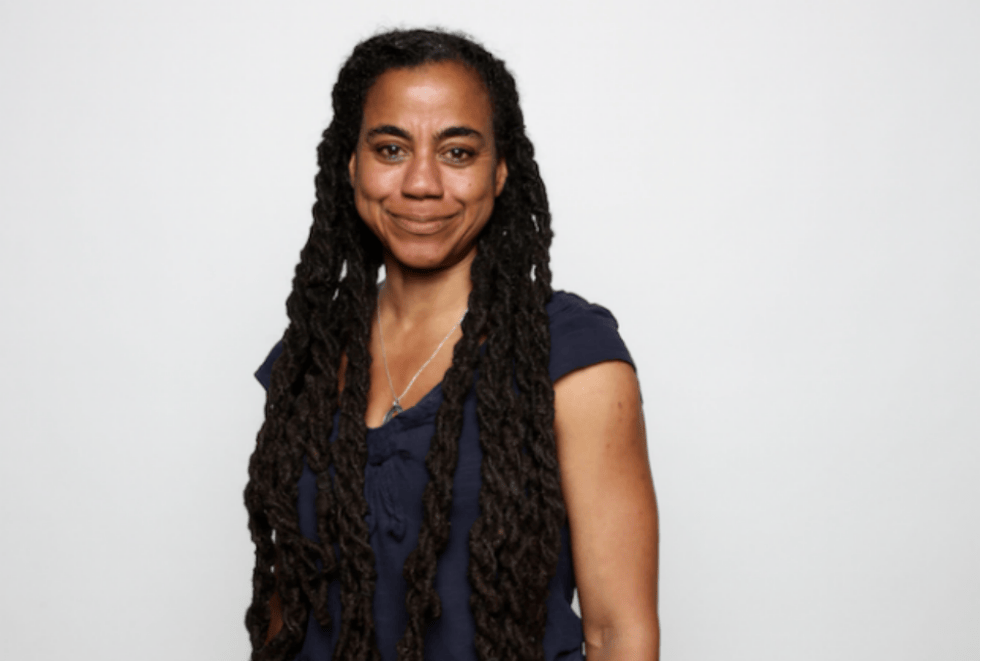
playwrights
“The play’s the thing.” It was 400 years ago when those words were first uttered by Hamlet, and the saying is true today. And within the Black community, powerful stage plays from For Colored Girls Who Have Considered Suicide/When the Rainbow Is Enuf to A Raisin in the Sun to Shuffle Along, remind us that Black women have been burning up the stage for quite some time. Today is no different. From MacArthur “Genius” Grant recipients to Pulitzer Prize winners to an icon creating her art well into her 80s, these five Black female playwrights are proving that the play is “the thing,” and they are doing their “thing” beautifully.
JACKIE SIBBLIES DRURY
Jackie Sibblies Drury is an African American female playwright known for her intentional breaking of the fourth wall where the audience is left wondering “Is this part of the play?” Her best-known plays include: We Are Proud to Present a Presentation About the Herero of Namibia, Formerly Known as Southwest Africa, From the German Sudwestafrika, Between the Years 1884 – 1915 (all one title) and Fairview, the latter of which has won the 2019 Susan Smith Blackburn Prize for female playwrights. Of the critically acclaimed play, Jackie Sibblies Drury says that Fairview explores surveillance and, due to implicit bias, why surveillance feels more dangerous to people of color. After watching the play, she hopes for people to better understand the worlds in which they live. Her newest play, Marys Seacole (Lincoln Theater) provides audiences with wonder as they watch a time-jumping experimental take on real-world 19th-century Jamaican healer, Mary Seacole.

credit: Miranda Barnes
LYNN NOTTAGE
Lynn Nottage is an African American female playwright known for her thoroughly researched works that help depict the story of the marginalized and deprived. Her breakthrough 2004 play Intimate Apparel starred Viola Davis in an off-Broadway production and depicted the life of a Black seamstress in early 20th-century New York. She has since gone on to become a two-time Pulitzer Prize-winning playwright for her plays Ruined, about Cambodian women under the threat of violence during the Civil War, and Sweat, set in a bar in a decaying industrialized town in Pennsylvania.
Lynn Nottage is the only woman to have won two Pulitzer Prizes for Drama which puts her in the rare company of acclaimed writers such as August Wilson (Fences) and Tennessee Williams (A Streetcar Named Desire). Sweat also won her the 2018 Susan Smith Blackburn Prize for women playwrights and, having come out in 2016, was said to be the first play to depict our current political environment. Lynn Nottage states, “Not just theatre but art, particularly in times like these, has to reflect what is happening in the culture.” Her newest play, Mlima’s Tale, is about an elephant named Mlima who is trapped inside the clandestine ivory market, and she is also set to bring Michael Jackson’s life to the stage in musical form.

credit: Bryan Derballa/New York Times/Redux/eyevine
SUZAN-LORI PARKS
Suzan-Lori Parks is the first African-American woman to receive the Pulitzer Prize in Drama for her play Topdog/Underdog, is a MacArthur “Genius” Award recipient, won a Tony Award for her adaptation of The Gershwin’s Porgy and Bess, and was named among TIME magazine’s “100 Innovators for the Next Wave” among many more accomplishments. Her other well-known plays include The Death of the Last Black Man in the Whole Entire World A.K.A. the Negro Book of the Dead, Fucking A, and In The Blood. She is returning to the stage after her critically acclaimed three-part play Father Comes Home from the Wars (Parts 1, 2, and 3) with her newest off-Broadway play White Noise.
Not only is Suzan-Lori Parks one of the most acclaimed playwrights of this generation, she is also a novelist (Getting Mother’s Body), screenwriter (Girl 6, Their Eyes Were Watching God, The United States vs. Billie Holiday), and singer-songwriter to a three-member band.

Courtesy of Suzan-Lori Parks
ADRIENNE KENNEDY
At 87 years old, Adrienne Kennedy continues to influence the art world with her well-crafted plays that depict the life of biracial African-American people that is partly based on her own life growing up the granddaughter of a wealthy white peach farmer. Her first professionally produced play, Funnyhouse of a Negro, won her an Obie award in 1964. She has since been awarded the Obie Lifetime Achievement award, an Anisfield-Wolf Books Lifetime Achievement Award, and the American Academy of Arts and Letters in Literature Award.
Her newest play He Brought Her Heart Back in a Box is a 45-minute tragic romance set in Georgia and New York City in the 1940s. It follows the lives of two star-crossed lovers, a biracial Black woman, and the wealthy white son of a businessman in the segregated south. Most of the play unfolds as letters between the two that recall a dark family history that may revolve around whether someone did or not bring someone’s heart back in a box. Of her plays, Adrienne Kennedy told the New York Times, “The monologues in my plays are really my mother smoking Lucky Strike cigarettes and saying, ‘I remember when, I remember when, I remember when.’”

credit: Khue Bui for The New York Times
DOMINIQUE MORISSEAU
Dominique Morisseau is a recipient of the 2018 MacArthur “Genius” Grant which awards 25 people $625,000 to sustain their artistic, intellectual, and professional activities over five years, no strings attached (Lin-Manuel Miranda is a previous recipient). The Genius Grant committee cited Dominique Morisseau’s “lyrical dialogue to construct emotionally complex characters who exhibit humor, vulnerability, and fortitude as they cope with sometimes desperate circumstances.”
Dominique Morisseau has said that the lack of roles available for her in college led her to start writing her own plays. Her well-known plays include Skeleton Crew, which is one of the most-produced plays of 2018-2019, that, combined with Paradise Blue, and Detroit ’67, make-up her 3-play Detroit cycle. Her last play, Pipeline, is currently playing at the Lincoln Theater in NY which focuses on the school-to-prison pipeline of the American Education System for men of color. Her newest play, Mud Row, is about two generations of sisters growing up in West Chester, PA. It premieres this summer.

credit: John D. & Catherine T. MacArthur Foundation
Related Articles
Bozoma Saint John talks Black motherhood, grief, self-love, and finding joy again. Don’t miss her powerful conversation on building legacy and living boldly.
Tyler Lepley shows the beauty of Black fatherhood, blended family life with Miracle Watts, & raising his three children in this Father Noir spotlight.
Black fathers Terrell and Jarius Joseph redefines modern fatherhood through love, resilience, unapologetic visibility in this Father Noir highlight.
Featured Articles
When Elitia and Cullen Mattox found each other, they decided that they wanted their new relationship together, their union, to be healthier and different.
Celebrate their marriage and partnership with the release of the documentary “Time II: Unfinished Business”
The vision for our engagement shoot was to celebrate ourselves as a Young Power Couple with an upcoming wedding, celebrating our five year anniversary - glammed up and taking over New York.
Our intent is to share love so that people can see, like love really conquers everything. Topics like marriage and finance, Black relationships and parenting.
Meagan Good and DeVon Franklin’s new relationships are a testament to healing, growth, and the belief that love can find you again when you least expect it.
HEY CHI-TOWN, who’s hungry?! In honor of #BlackBusinessMonth, we teamed up with @eatokratheapp, a Black-owned app designed to connect you with some of the best #BlackOwnedRestaurants in YOUR city – and this week, we’re highlighting some of Chicago’s best!











